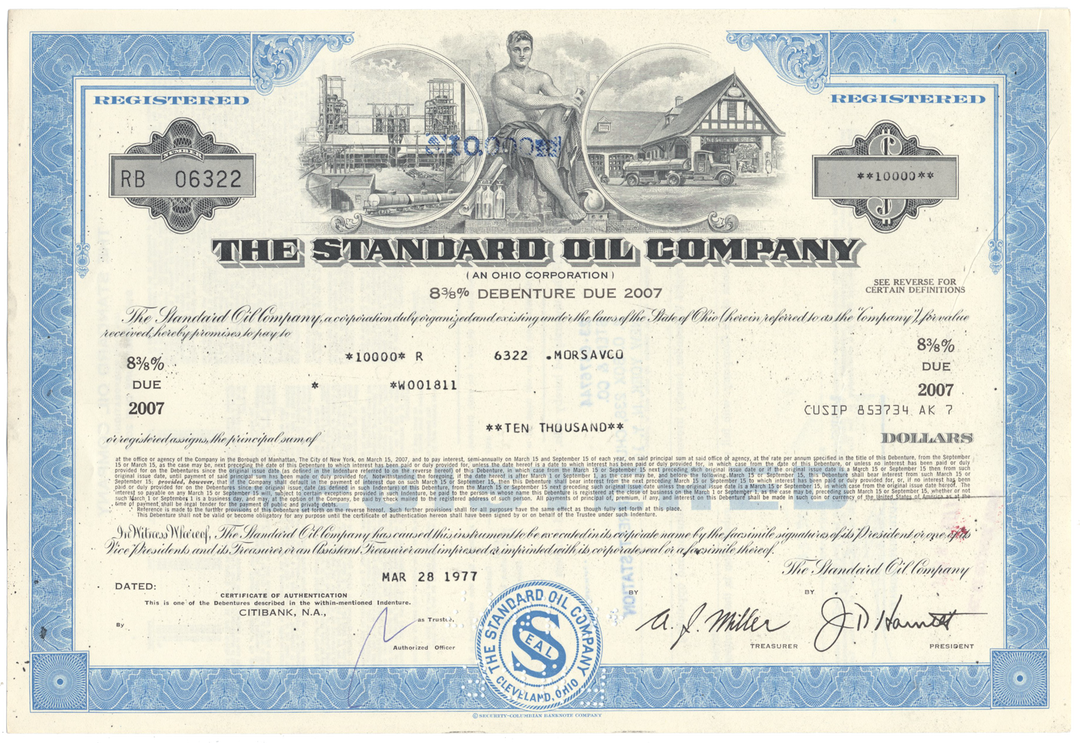
Standard Oil Company
- Guaranteed authentic document
- Orders over $100 ship FREE to U. S. addresses
Regular price
$ 8.75
$ 8.75
Regular price
$ 25.00
$ 25.00
Sale price
$ 8.75
$ 8.75
Save 65%
/
Representative of the piece you will receive
Over 35 years old
Debenture bond
March 28, 1977
Issued, canceled
Security-Columbian Bank Note Company
Machine printed signtures
12" (w) by 8" (h)
NA
Additional Information
Certificates carry no value on any of today's financial indexes and no transfer of ownership is implied. All items offered are collectible in nature only. So, you can frame them, but you can't cash them in!
All of our pieces are original - we do not sell reproductions. If you ever find out that one of our pieces is not authentic, you may return it for a full refund of the purchase price and any associated shipping charges.




